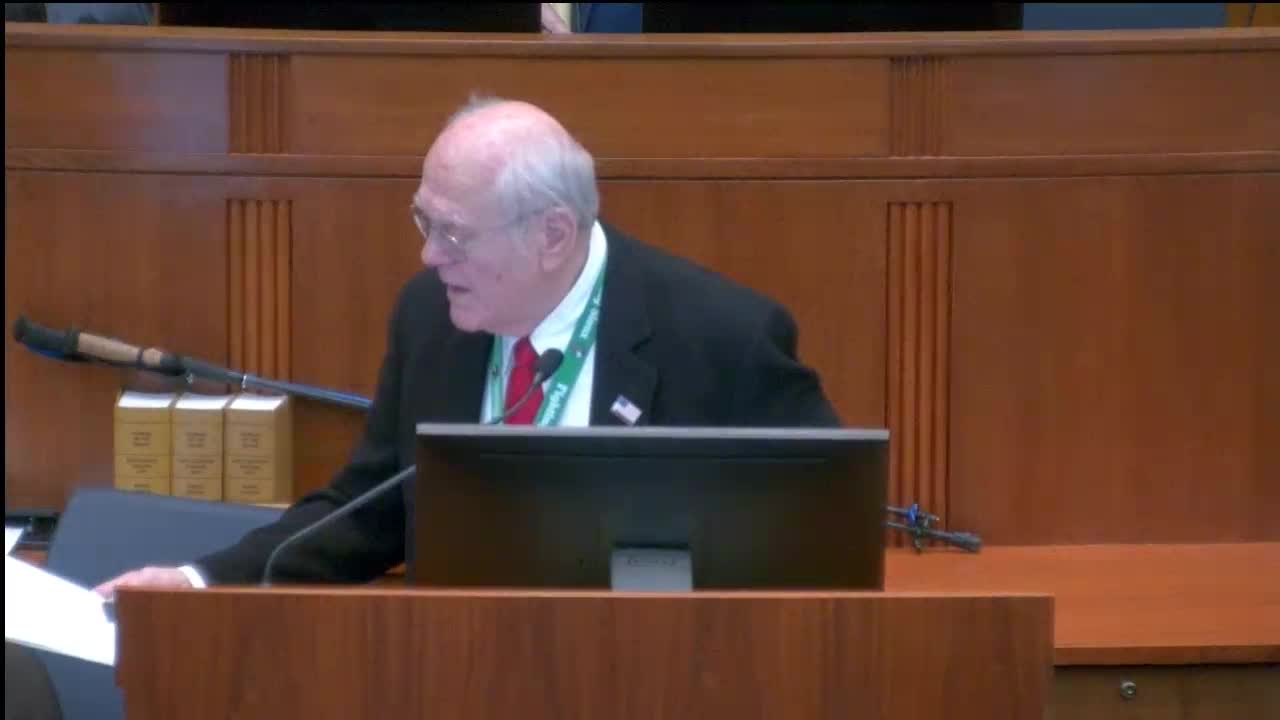House approves resolution backing CO2 use for enhanced oil recovery after sharp debate
Get AI-powered insights, summaries, and transcripts
Subscribe
Summary
The North Dakota House approved House Concurrent Resolution 3016, which encourages state and federal support for enhanced oil recovery using carbon dioxide, after a floor debate that split members over economic benefits and concerns about government-created markets and sequestration.
The North Dakota House of Representatives voted to adopt House Concurrent Resolution 30 16, recognizing the economic potential of enhanced oil recovery (EOR) that uses carbon dioxide and urging state and federal policies that support carbon-capture and utilization, the chamber’s Energy and Natural Resources committee reported and the full House approved by recorded roll-call vote.
The resolution recognizes the Bakken formation as a major energy resource and urges continued development of carbon capture, utilization and storage technologies to support energy security and extend productive life of oil formations, the committee sponsor said. The measure passed on a recorded vote (the clerk reported the final tally as 67 yeas, 20 nays, 3 absent) and was declared adopted on the floor.
Why this matters: proponents argued the resolution signals support for technologies that can inject captured CO2 into aging oil fields to boost production and sustain energy-related revenue for the state. Opponents said the state should not be endorsing what they described as a government-created market propped up by federal tax credits and incentives.
Supporters told the House that CO2-based EOR has a track record and can extend the life of conventional fields. Representative Nelson said the technology’s effectiveness is not in doubt and that EOR “is in the toolbox” for states that rely heavily on energy revenue. Representative Jay Olson described a visit to the Weyburn field in Saskatchewan and said, “They’ve been using CO2 up there, and they’ve been using that for decades,” urging members to support the resolution.
Opponents focused on economic and policy objections. Representative Hoverson said the state risks endorsing a market created by government incentives rather than market demand, calling current federal subsidies and credits “corporate welfare.” He characterized broad policy support for sequestration as misguided and referred to an $18 billion figure, arguing the economic gains would not accrue broadly to citizens.
The resolution text encourages “favorable policies to support the development of carbon capture technology and utilization of carbon dioxide as a commodity for advancing energy security,” language read on the floor by the committee sponsor and reflected in the House debate. The measure does not change statute or appropriate funds; it is a statement of policy preference and a request that state and federal authorities maintain pro‑EOR policy settings.
No committee direction to staff or binding regulatory change was recorded on the floor; the action taken was the adoption of a concurrent resolution.
Ending: The resolution’s passage leaves actual project approvals, permitting, and any financial incentives to existing executive agencies and federal programs; supporters said it signals legislative support as those processes continue, while opponents warned of broader economic and property‑rights consequences.
